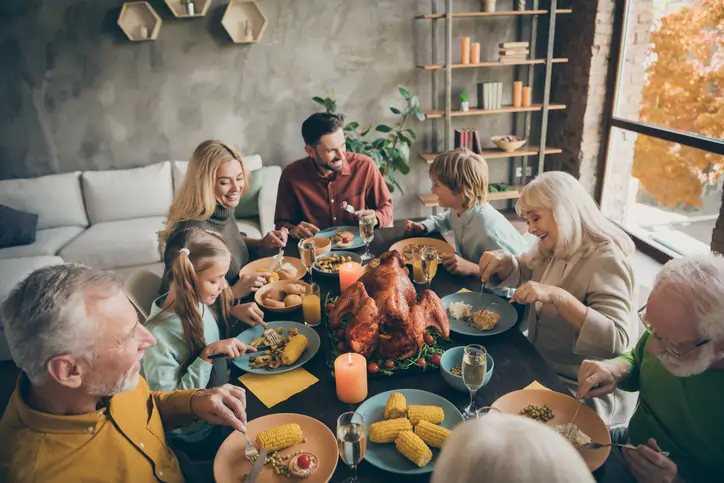
Family traditions are powerful anchors that shape the way we connect, learn, and grow within our closest relationships. These customs, whether passed down through generations or newly created, offer more than just routine—they provide emotional security, reinforce identity, and build a shared sense of meaning.
When practiced consistently, Eric Wippman knows even the smallest rituals can become cherished parts of family life, strengthening bonds and teaching values in subtle, lasting ways. As families evolve, so do their traditions, adapting to changing lifestyles while preserving the essence of togetherness. The beauty lies not in the scale of the tradition but in the connection it fosters and the memories it helps create.
Defining Family Traditions and Their Everyday Forms
Family traditions are repeated behaviors or customs that hold meaning across generations. These can be as simple as Sunday dinners, holiday gatherings, or evening walks around the neighborhood. While they may vary in scale, they often create a rhythm that shapes how families spend time together.
In some homes, it might be reading stories before bed, while in others, it’s preparing a favorite meal each season. These patterns may differ across cultures or time periods, but at their core, they reflect what each family values and chooses to preserve. Many of these practices begin unintentionally but grow into meaningful rituals over time.
Building Connection and Belonging
Family traditions help create a natural sense of unity. Whether it’s gathering for a weekly movie night or attending an annual reunion, these shared moments give everyone a place where they feel seen and valued. The repetition of these customs reinforces emotional ties and creates a safe, familiar space.
Children especially benefit from the comfort of predictability. Knowing that certain activities happen regularly—like baking cookies together every December or lighting candles on birthdays—helps form a reliable emotional anchor. These experiences don’t just fill time; they shape identity and strengthen the feeling of being part of something larger.
Over time, even small rituals can leave a lasting imprint. A simple goodnight phrase or a family handshake before school can deepen the sense of connection. These gestures, though brief, carry emotional weight that builds over the years. Such habits often become treasured symbols of love and consistency.
Teaching Values Through Repeated Practices
Traditions naturally reflect what families believe in. Whether it’s showing appreciation by writing thank-you notes after holidays or prioritizing togetherness with nightly dinners, these routines communicate values without formal lessons. Children often absorb these messages simply by participating.
Helping others, honoring elders, or setting aside time for gratitude before meals—these become habits through repetition. The act itself becomes a quiet teacher, showing younger generations what matters most. These lessons tend to stay with people long after childhood. They are quietly woven into a person’s character and influence decisions well into adulthood.
Even when not explicitly stated, traditions often pass on respect, empathy, and responsibility. The consistent nature of these practices allows values to take root gradually and meaningfully. In this way, traditions become a living expression of a family’s moral compass.
Supporting Childhood Growth and Learning
Children thrive on structure, and traditions often provide a dependable framework. When families engage in repeated practices—like setting the table together every evening or sharing a story before bedtime—kids begin to understand expectations and routines without needing constant reminders.
These customs also offer subtle lessons in communication and cooperation. Whether it's taking turns during a board game night or helping clean up after a shared meal, children learn to function as part of a group. Over time, these small acts build confidence, self-discipline, and a sense of responsibility. They also help children learn empathy by recognizing their role within a broader family system.
In more ways than one, traditions act as quiet guides. They shape how young minds interpret the world around them, reinforcing values and behaviors that support emotional and social development. These early experiences often set the foundation for how children engage with their communities later in life.
Adapting Traditions for Modern Family Life
As families grow and change, so do their traditions. A custom that once involved a large gathering might evolve into a video call across different time zones. What matters isn’t the form it takes, but the intention behind it.
Blending different cultural or generational practices can also bring richness to new rituals. Sharing recipes from multiple backgrounds during the holidays or creating a new annual activity that includes everyone keeps traditions relevant and inclusive. Flexibility allows families to stay connected, even when circumstances shift. When traditions evolve with intention, they remain meaningful across generations.
Practical Ideas for Meaningful Family Traditions
Meaningful traditions don’t have to be elaborate. A short walk after dinner, a monthly game night, or handwritten notes tucked into lunchboxes can make a lasting impression. These simple gestures create moments that feel special without requiring much time or planning.
What makes a tradition stick isn’t how grand it is, but how consistently it’s practiced. Small, thoughtful routines often become the most beloved memories, especially when they’re repeated over time and genuinely enjoyed by everyone involved. These rituals, though modest, form the heart of many joyful family experiences and become part of a family's unique story.


